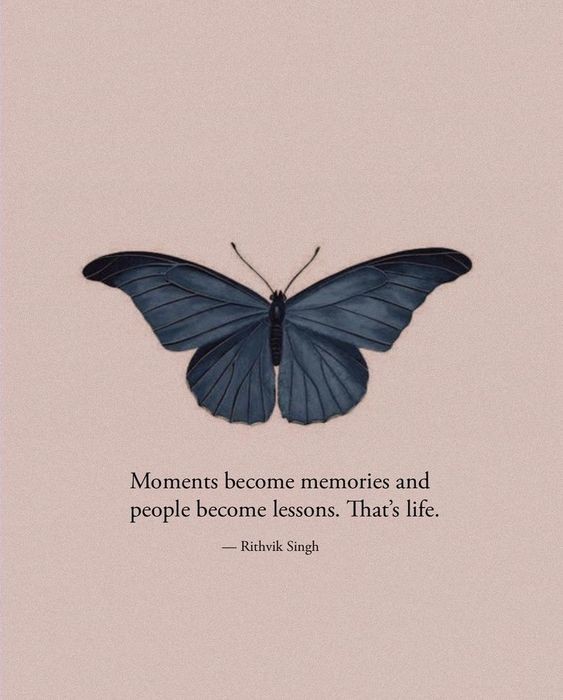The Power of Quotes: Wisdom in a Few Words
Quotes have been cherished across cultures and eras for their ability to encapsulate profound truths and insights into just a few words. They serve as brief yet powerful tools that convey complex ideas, emotions, and experiences. From ancient philosophers to modern thinkers, quotes offer a glimpse into the human condition and provide guidance, inspiration, and reflection.
The Art of Quoting
A quote is more than just a collection of words; it’s a distilled form of wisdom, often derived from personal experience or deep contemplation. The art of quoting involves selecting phrases that resonate on a universal level, capturing essential truths that transcend time and context. This conciseness allows quotes to be memorable and impactful, as they often encapsulate an idea or sentiment in a way that is both accessible and thought-provoking.
Historical Significance of Quotes
Throughout history, quotes have played a significant role in shaping thought and culture. Ancient philosophers such as Socrates and Confucius left behind sayings that continue to influence modern philosophy and ethics. For example, Socrates’ “The unexamined life is not worth living” urges individuals to seek introspection and self-awareness. Similarly, Confucius’ “It does not matter how slowly you go as long as you do not stop” emphasizes perseverance and steady progress.
In the realm of literature, quotes from writers like Shakespeare and Jane Austen have become iconic, reflecting the universal themes of love, ambition, and human nature. Shakespeare’s “To be, or not to be: that is the question” explores existential dilemmas, while Austen’s “It is a truth universally acknowledged, that a single man in possession of a good fortune, must be in want of a wife” critiques societal expectations and marital norms.
The Role of Quotes in Modern Society
In contemporary times, quotes have found their place in everyday life, from social media posts to motivational speeches. They are used to encapsulate personal philosophies, offer comfort during difficult times, and inspire action. For instance, motivational quotes like “The only limit to our realization of tomorrow is our doubts of today” by Franklin D. Roosevelt are frequently cited to encourage resilience and optimism.
Quotes also play a significant role in popular culture. They appear in movies, books, and music, often becoming catchphrases or mantras that resonate with audiences. The memorable lines from films like “May the Force be with you” from Star Wars or “I’ll be back” from Terminator have become part of the cultural lexicon, reflecting and shaping collective consciousness.
The Psychological Impact of Quotes
The power of quotes lies in their ability to evoke emotions and provoke thought. A well-chosen quote can inspire, comfort, or challenge the reader, often reflecting their current state of mind or life circumstances. The brevity of quotes allows them to be easily remembered and recalled, making them effective tools for self-reflection and motivation.
Research in psychology suggests that quotes can have a positive impact on mental health. For example, affirmations and motivational quotes can boost self-esteem and reduce stress by providing reassurance and encouragement. Additionally, quotes that align with personal values or beliefs can reinforce a sense of identity and purpose.
Crafting Your Own Quotes
Creating a meaningful quote involves distilling complex ideas into succinct and memorable phrases. To craft your own quotes, consider the following steps:
Reflect on Personal Experiences: Draw from your own life experiences and insights. Authenticity often resonates more deeply with others.
Identify Core Messages: Focus on the central message you want to convey. What is the essence of your thought or feeling?
Use Clear and Concise Language: Aim for clarity and simplicity. Avoid unnecessary complexity to ensure your quote is easily understood and remembered.
Embrace Metaphors and Analogies: Metaphors can make abstract concepts more tangible and relatable, adding depth to your quote.
Revise and Refine: Crafting a great quote often requires revision. Refine your words until they capture the essence of your message in a powerful and precise manner.
Quotes as Cultural Touchstones
Quotes can also serve as cultural touchstones, reflecting the values, concerns, and aspirations of a particular era. For instance, the quote “I have a dream” from Martin Luther King Jr.’s iconic speech symbolizes the civil rights movement and the ongoing quest for equality and justice.
In times of crisis or change, quotes can provide solace and direction. For example, during periods of upheaval, quotes like “In the middle of every difficulty lies opportunity” by Albert Einstein can offer hope and encourage a positive perspective.
Conclusion
Quotes are more than just words; they are vessels of wisdom, inspiration, and reflection. Their ability to encapsulate complex ideas into brief, memorable phrases makes them powerful tools for communication and self-expression. Whether drawn from historical figures, literary giants, or personal experiences, quotes have the capacity to resonate deeply with individuals and societies alike. As we continue to navigate the complexities of life, quotes remain a valuable source of insight and encouragement, reminding us of the enduring power of succinct, thoughtful expression.






